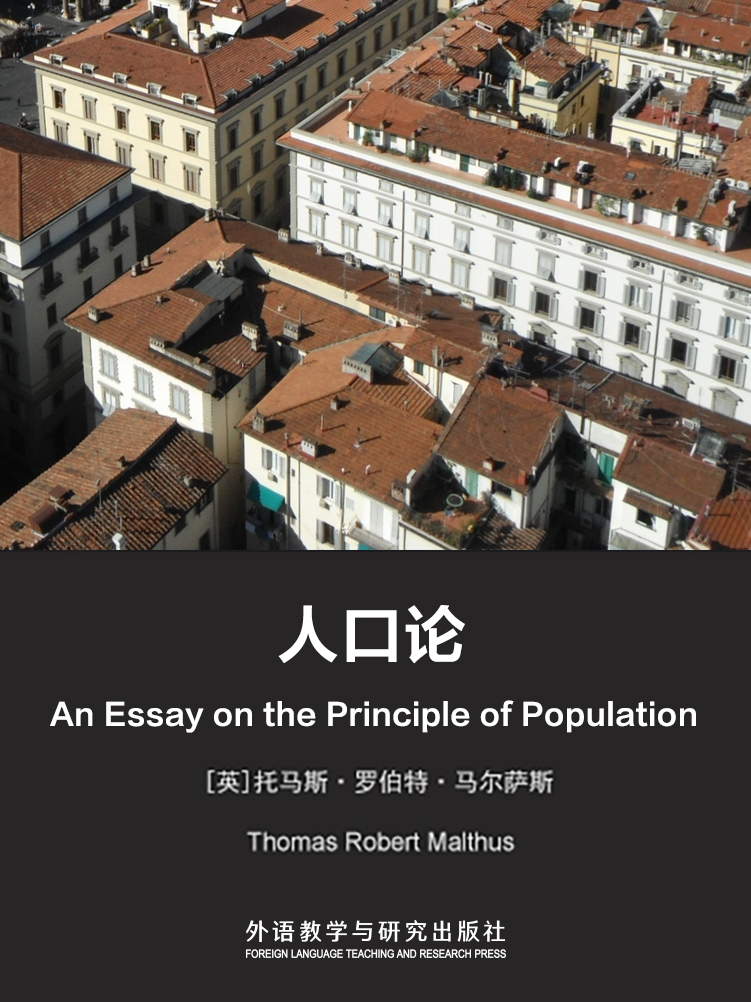人口增长是不是贫困和罪恶的根源?
The book An Essay on the Principle of Population was first published in 1798 under the alias Joseph Johnson, but the author was soon identified as Thomas Robert Malthus. While it was not the first book on population, it has been acknowledged as the most influential work of its era. Its 6th edition was independently cited as a key influence by both Charles Darwin and Alfred Russel Wallace in developing the theory of natural selection.
A key portion of the book was dedicated to what is now known as Malthus' Iron Law of Population. This name itself is retrospective, based on the iron law of wages, which is the reformulation of Malthus' position by Ferdinand Lassalle, who in turn derived the name from Goethe's "great, eternal iron laws" in Das Göttliche. This theory suggested that growing population rates would contribute to a rising supply of labour that would inevitably lower wages. In essence, Malthus feared that continued population growth would lend itself to poverty.
One immediate impact of Malthus's book was that it fueled the debate about the size of the population in Britain and led to (or at least greatly accelerated) the passing of the Census Act 1800. This Act enabled the holding of a national census in England, Wales and Scotland, starting in 1801 and continuing every ten years to the present.
In 1803, Malthus published a major revision to his first edition, as the same title second edition; his final version, the 6th edition, was published in 1826. However, in 1830, 32 years after the first edition, Malthus published a condensed version titled A Summary View on the Principle of Population, which included remarks about criticisms of the main book.
《人口论》于1798年由人口学家马尔萨斯发表,为工业革命前、人均生产力不足时期政治经济学的经典之作。马尔萨斯在《人口论》一书中提出的“人口理论”不仅在当时引起了巨大的社会反响,而且对后世的各种人口研究也有极为深刻的影响,而他的“有效需求论”对20世纪英国最伟大的经济学家约翰·梅纳德·凯恩斯的有效需求理论有着重要的启发,后者在关于马尔萨斯的一篇传记中以崇敬的口吻称其为“第一位剑桥经济学家”,称颂他“有深刻的经济学直觉,不但能够对变换的经验图景保持开放的头脑,而且一直不间断地以他的规范思想中的原理来解释经验”。
The book An Essay on the Principle of Population was first published in 1798 under the alias Joseph Johnson, but the author was soon identified as Thomas Robert Malthus. While it was not the first book on population, it has been acknowledged as the most influential work of its era. Its 6th edition was independently cited as a key influence by both Charles Darwin and Alfred Russel Wallace in developing the theory of natural selection.
A key portion of the book was dedicated to what is now known as Malthus' Iron Law of Population. This name itself is retrospective, based on the iron law of wages, which is the reformulation of Malthus' position by Ferdinand Lassalle, who in turn derived the name from Goethe's "great, eternal iron laws" in Das Göttliche. This theory suggested that growing population rates would contribute to a rising supply of labour that would inevitably lower wages. In essence, Malthus feared that continued population growth would lend itself to poverty.
One immediate impact of Malthus's book was that it fueled the debate about the size of the population in Britain and led to (or at least greatly accelerated) the passing of the Census Act 1800. This Act enabled the holding of a national census in England, Wales and Scotland, starting in 1801 and continuing every ten years to the present.
In 1803, Malthus published a major revision to his first edition, as the same title second edition; his final version, the 6th edition, was published in 1826. However, in 1830, 32 years after the first edition, Malthus published a condensed version titled A Summary View on the Principle of Population, which included remarks about criticisms of the main book.
- CHAPTER Preface
- CHAPTER 1
- CHAPTER 2
- CHAPTER 3
- CHAPTER 4
- CHAPTER 5
- CHAPTER 6
- CHAPTER 7
- CHAPTER 8
- CHAPTER 9
- CHAPTER 10
- CHAPTER 11
- CHAPTER 12
- CHAPTER 13
- CHAPTER 14
- CHAPTER 15
- CHAPTER 16
- CHAPTER 17
- CHAPTER 18
- CHAPTER 19
- 书评 写书评
- 笔记
-
书评加载中...























 京公网安备 11010802032529号
京公网安备 11010802032529号
笔记加载中...